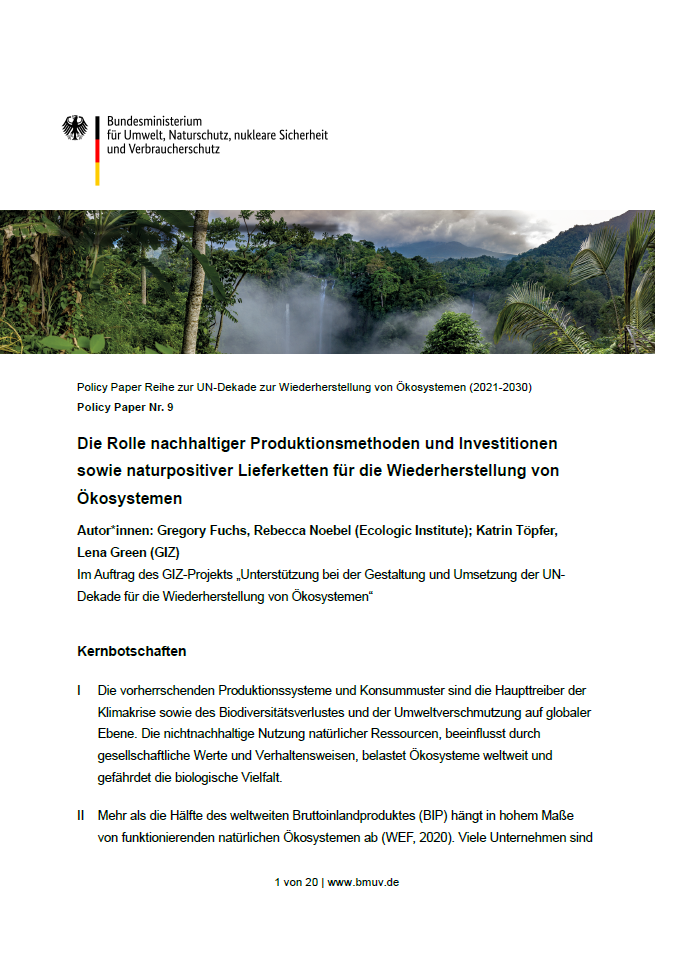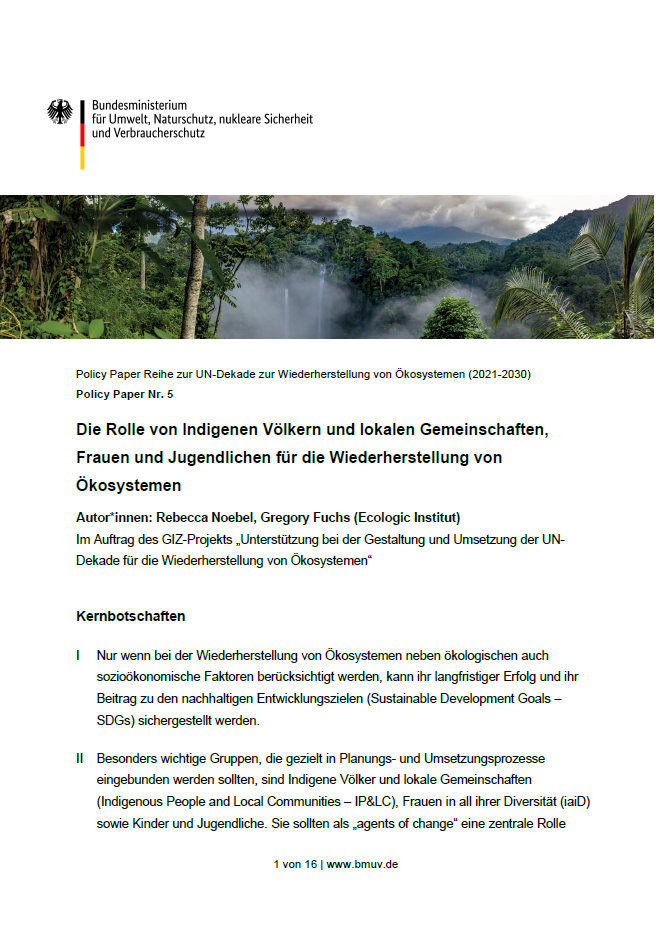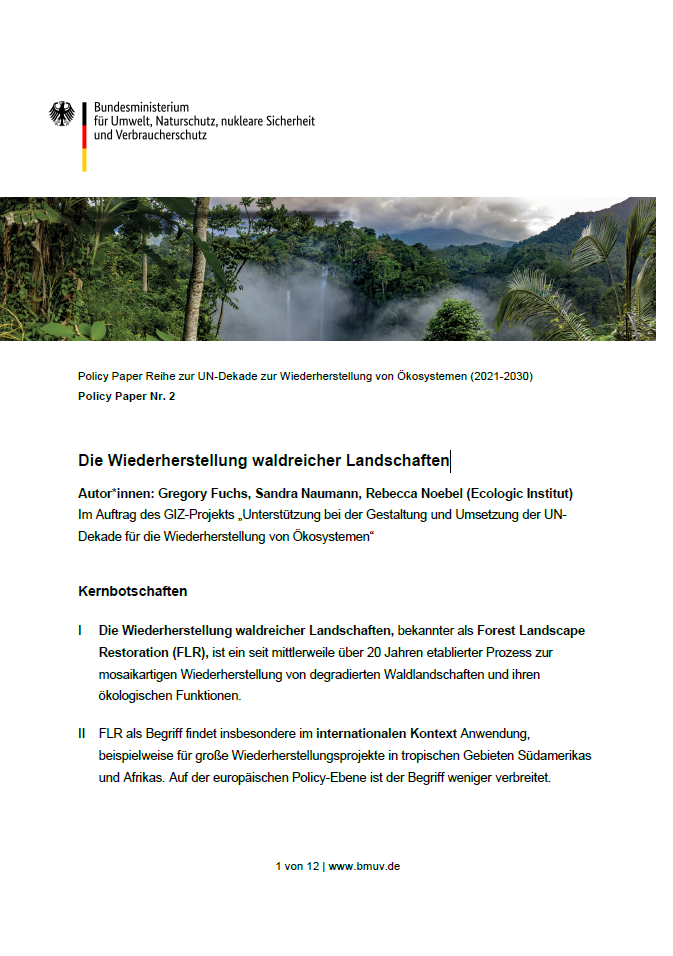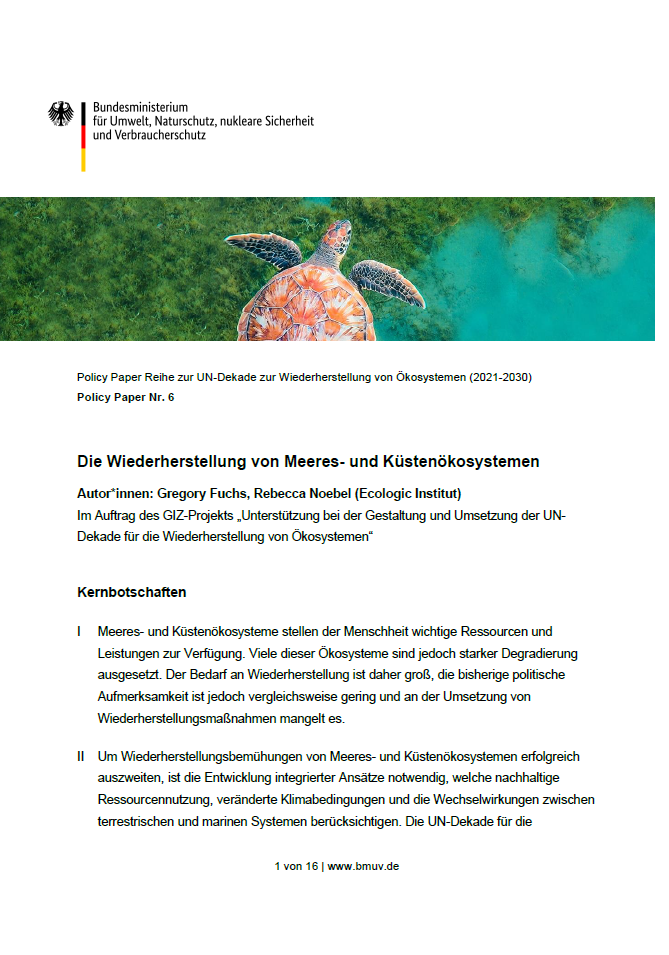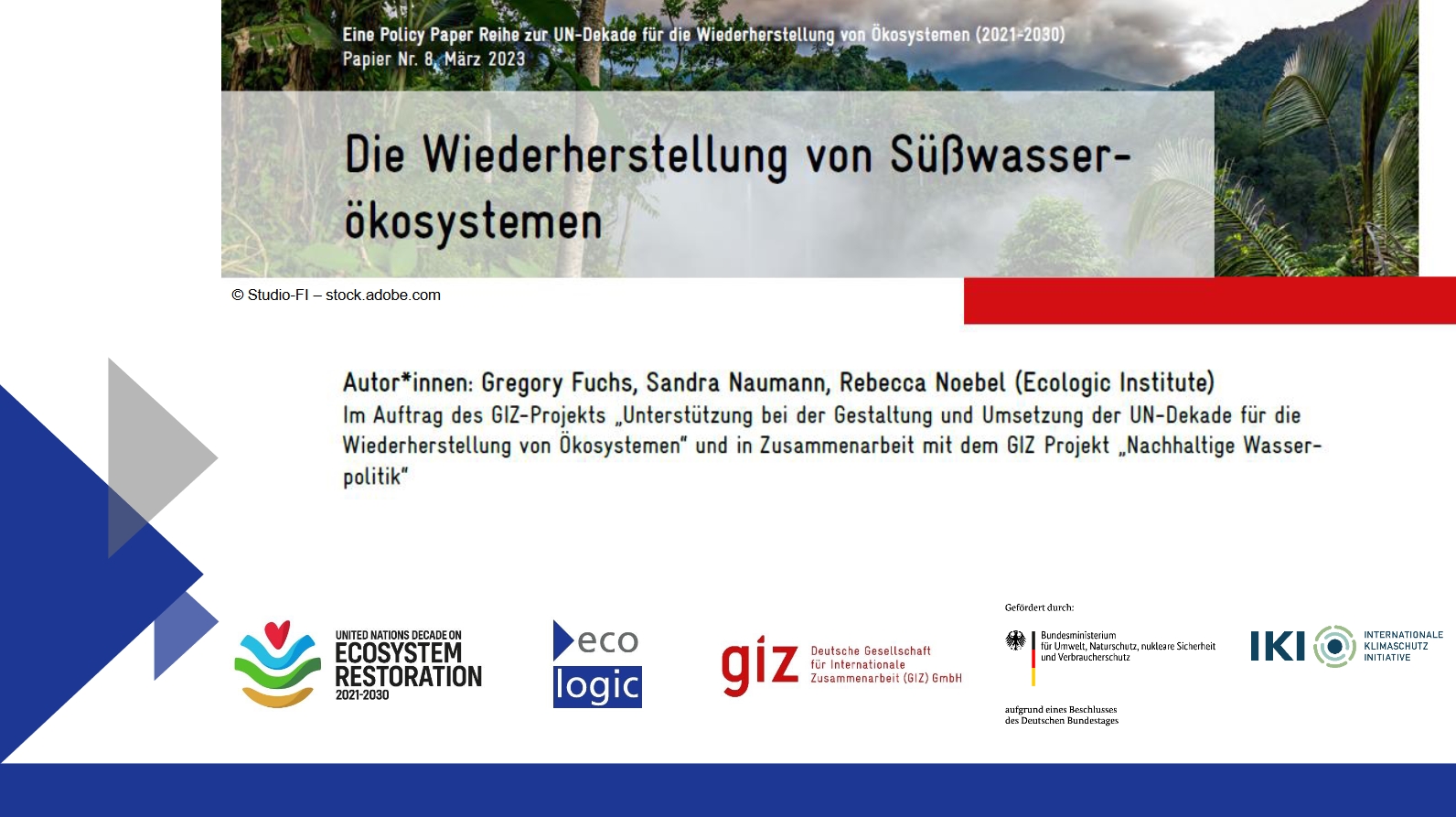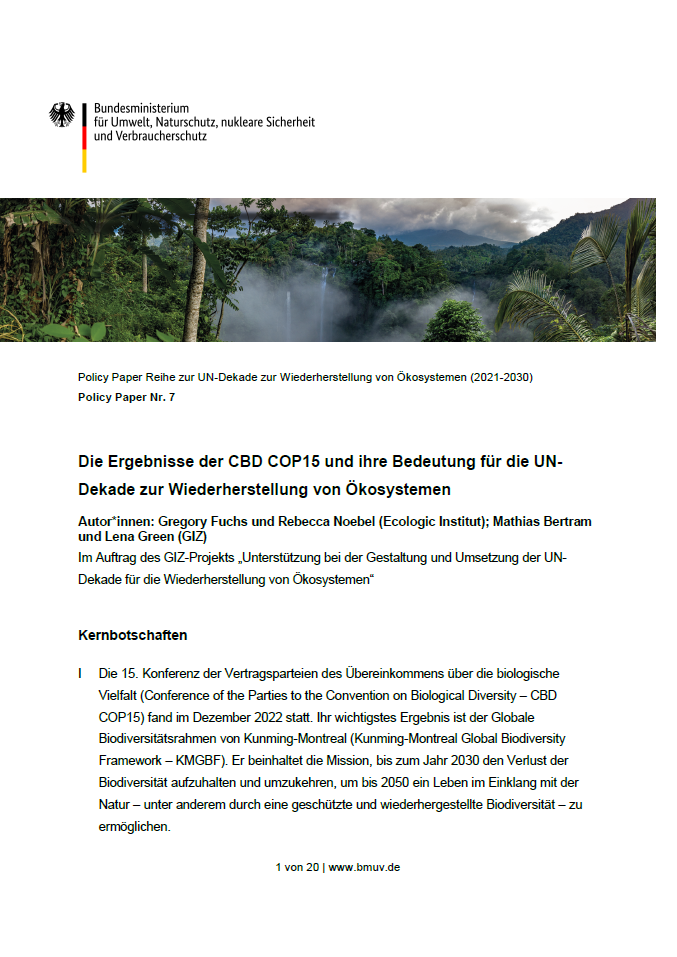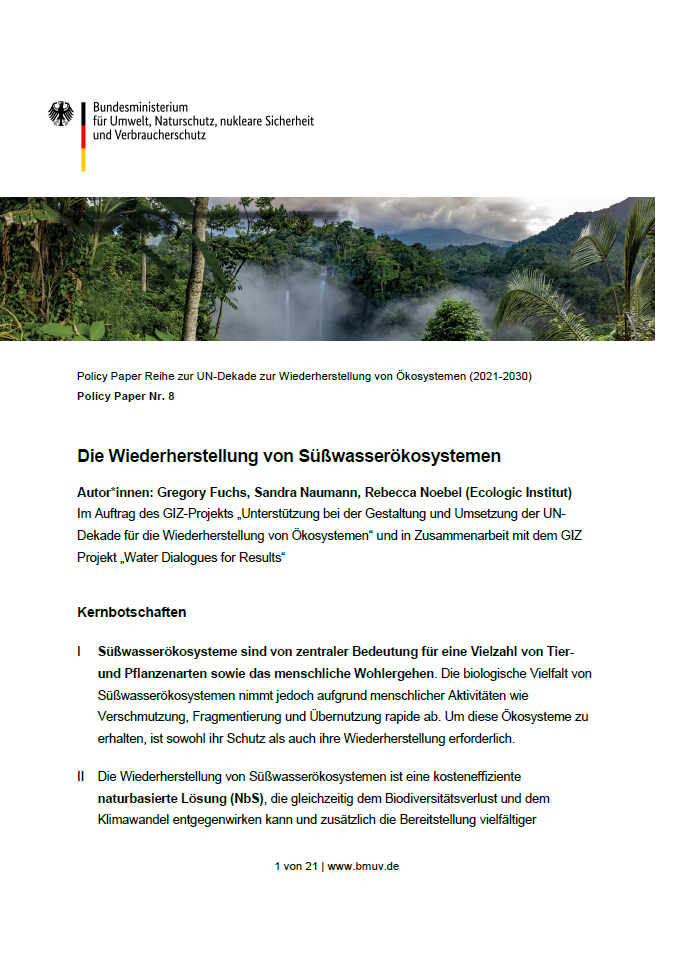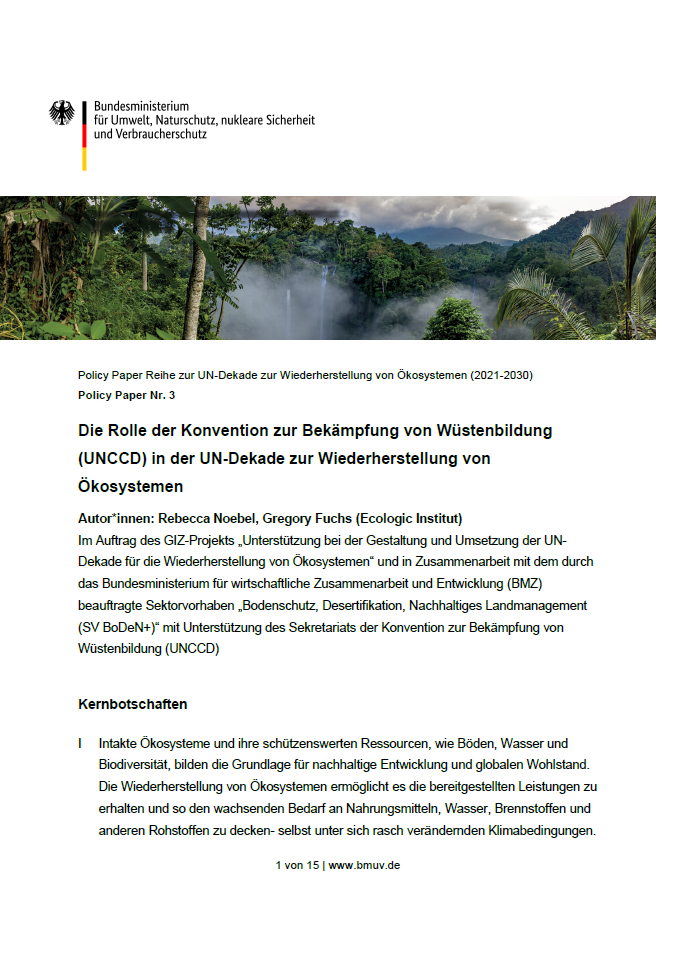Die Rolle nachhaltiger Produktionsmethoden und Investitionen sowie naturpositiver Lieferketten für die Wiederherstellung von Ökosystemen
- Publication
- Citation
Fuchs, Gregory et al. 2023: Die Rolle nachhaltiger Produktionsmethoden und Investitionen sowie naturpositiver Lieferketten für die Wiederherstellung von Ökosystemen. Policy Paper Nr. 9 der Policy Paper Reihe zur UN-Dekade zur Wiederherstellung von Ökosystemen (2021-2030). Federal Ministry for the Environment, Nature Conservation, Nuclear Safety and Consumer Protection, Berlin.
In an era where climate change and biodiversity loss rank among the most pressing global challenges, the need for a profound transformation of our economic and production systems comes into focus. But how can companies and societies effectively design this shift towards greater sustainability? This policy brief highlights the importance of sustainable production methods, investments, and nature-positive supply chains for the restoration of ecosystems and outlines action approaches for a sustainable future. The paper was composed in 2023 and subsequently updated within the same year to reflect the latest scientific and policy advancements.
Sustainable Production Methods as the Key
The prevailing production and consumption patterns are largely responsible for the climate crisis, biodiversity loss, and environmental pollution. A transformation towards sustainable production methods and consumption patterns is essential to counter these negative trends. Innovative thinking, targeted investments, and the creation of supportive legal frameworks are central building blocks.
The Economic Viability of Ecosystem Restoration
More than half of the global Gross Domestic Product (GDP) depends on the integrity of natural ecosystems. Thus, the restoration of ecosystems is not only an ecological necessity but also an economic one. Investments in restoration can generate multiple economic benefits by laying the groundwork for sustainable resource extraction and economic activities.
Nature-Positive Supply Chains and Landscape Approaches
For many companies, establishing deforestation-free and nature-positive supply chains can be a first step. These approaches go beyond merely avoiding environmental damage and actively contribute to the protection and restoration of ecosystems. Landscape approaches, which promote cooperative and cross-sectoral planning and implementation of environmental protection measures, provide a framework for sustainable economic activity.
Recommendations for a Sustainable Future
Designing a sustainable future requires the engagement and collaboration of all societal actors. Governments must promote sustainable economic practices through legal regulations and incentives, while companies should take a leading role and invest in nature-positive supply chains and landscape approaches. Moreover, strengthening international cooperation is essential to create synergies and effectively address global challenges.
Conclusion
The transformation towards sustainable economic and production systems is a complex but indispensable task that can only be mastered through the joint action of politics, economy, civil society, and science. By prioritizing nature-positive approaches and fostering innovative solutions, we can pave the way to a more equitable, sustainable, and resilient future.
